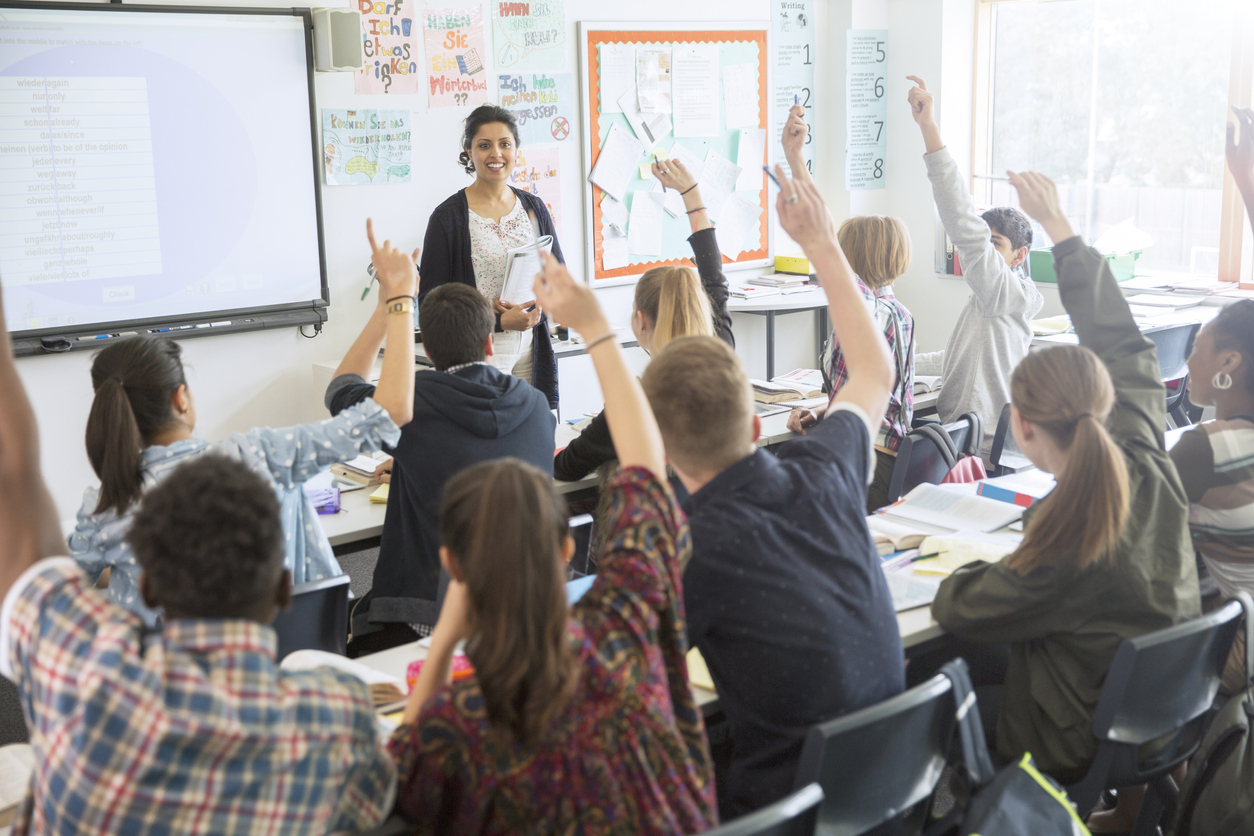The Best Primary Science Tuition Singapore for Effective Learning Methods
The Best Primary Science Tuition Singapore for Effective Learning Methods
Blog Article
Checking Out the Different Training Approaches in Primary Science Education And Learning Today
The landscape of key science education is evolving, with numerous teaching methods acquiring prominence in modern class. Inquiry-based knowing, hands-on experiments, and the integration of modern technology are redefining just how instructors engage young minds. Additionally, collaborative strategies and differentiated instruction are being used to satisfy the diverse needs of students, boosting both interaction and understanding. As we check out these techniques, concerns emerge concerning their performance and the ramifications for future educational techniques. What might these changes in approach mean for the future generation of learners?
Inquiry-Based Learning
Inquiry-Based Discovering (IBL) is a pedagogical strategy that motivates pupils to explore scientific concepts via questioning, examination, and hands-on experimentation. This technique highlights the duty of students as active individuals in their discovering, advertising vital reasoning and analytical skills. By engaging with real-world concerns, trainees end up being motivated and curious, which enhances their understanding of clinical concepts.
In IBL, teachers act as facilitators, guiding trainees as they navigate their queries as opposed to delivering info directly. This student-centered approach permits differentiation, suiting various discovering speeds and designs. Trainees establish skills in creating hypotheses, making experiments, and evaluating information, which are vital for clinical literacy.
Additionally, IBL fosters partnership among students, encouraging them to share ideas and findings. This cumulative questions advertises social skills and a feeling of neighborhood within the classroom. The procedure of inquiry urges resilience, as trainees learn to welcome failing as a tipping rock toward understanding.
Hands-On Experiments
Hands-on experiments are an essential part of efficient science education and learning, matching the principles of inquiry-based understanding. These experiments enable pupils to engage straight with clinical ideas, fostering a deeper understanding with experiential understanding. By adjusting products and observing outcomes, young students can understand abstract concepts in substantial methods.
Such activities advertise critical reasoning and analytic skills, as pupils assume end results, conduct experiments, and analyze results. This procedure encourages them to ask concerns, refine their understanding, and establish a scientific mindset. In addition, hands-on experiments can be customized to diverse learning styles, making certain that all pupils have the chance to engage meaningfully with the content.
In addition, hands-on experiments often encourage collaboration among peers, advertising synergy and interaction skills. Working in groups makes it possible for students to share concepts, go over findings, and gain from one another, which enhances their overall educational experience.
Incorporating hands-on experiments right into the main scientific research curriculum not just enriches the discovering atmosphere however likewise grows a lifelong interest in science. By proactively joining their education, students are most likely to create a passion for clinical questions that expands past the class.

Innovation Assimilation
Integrating innovation into key scientific research education and learning has actually come to be progressively important in cultivating student engagement and enhancing discovering results. The use of digital tools, such as interactive simulations, online labs, and instructional software program, offers students with chances to explore clinical ideas in innovative methods. These sources help with a much deeper understanding of complicated subjects by allowing learners to picture and adjust variables that would certainly be unwise in a typical class setting.
In addition, modern technology integration motivates individualized learning experiences. Pupils can advance at their own speed, taking another look at tough ideas through multimedia resources, which deal with different knowing designs. This adaptability not just supports private development but also grows a sense of freedom in learners.
In addition, innovation serves as a bridge to real-world science, attaching students with current study and specialist payments. Accessibility to clinical journals and online databases broadens students' viewpoints on scientific questions and cultivates critical believing skills.
Collaborative Learning
Collective discovering plays a vital role in main scientific research education by cultivating teamwork and communication skills among students. This strategy urges learners to work together, share expertise, and participate in analytic, which enhances their understanding of scientific principles. By joining team tasks, trainees learn to express their concepts, pay attention to varied viewpoints, and negotiate services, every one of which are necessary abilities in both scholastic and real-world contexts.

Research study indicates that joint discovering can bring about raised motivation and engagement in scientific research topics, as students discover satisfaction in shared experiences (primary science tuition Singapore). Additionally, this strategy prepares students for future collective endeavors, equipping them with the skills needed for reliable teamwork in college and specialist settings. Ultimately, accepting collective knowing in main scientific research education and learning can substantially enrich the discovering experience and advertise a much deeper understanding of clinical questions
Separated Guideline

Differentiated instruction can show up in numerous means, such as differing the web content, procedures, or items of knowing. Instructors may make use of tiered projects that offer varying levels of intricacy, permitting trainees to function at their corresponding preparedness levels. Additionally, adaptable organizing techniques can facilitate cooperation among pupils with various abilities, promoting peer learning.
Analysis plays a critical duty in this technique, as it notifies guideline and aids educators comprehend each pupil's special needs. Developmental analyses, such as monitorings and quizzes, can assist teachers in changing their techniques to boost learning end results. primary science tuition Singapore. Ultimately, by executing separated instruction in main scientific research education, instructors can grow a more fair and reliable discovering environment, equipping all students to reach their full possibility in understanding scientific phenomena
Verdict
In summary, the diverse training strategies in main scientific research education, consisting of inquiry-based understanding, hands-on experiments, technology integration, collective discovering, and distinguished direction, collectively contribute to a more reliable understanding environment. primary science tuition Singapore These approaches advertise essential thinking, analytical skills, and a deeper comprehension of clinical principles. By applying these strategies, educators can create interesting and encouraging class that attend to the different demands of pupils, inevitably cultivating a long-lasting rate of interest in scientific research and enhancing academic success.
Inquiry-Based Learning (IBL) is an instructional technique that encourages pupils to discover clinical concepts through wondering about, investigation, and hands-on experimentation.Collective discovering plays an important role in main science education by cultivating team effort and communication abilities amongst pupils.Research study indicates that joint discovering can lead to enhanced inspiration and interaction in science topics, as trainees locate enjoyment in shared experiences.In promoting an inclusive understanding atmosphere, differentiated direction emerges as a vital technique to suit the diverse demands and capacities of trainees in primary science education and learning. Eventually, by applying separated guideline in primary scientific research education, teachers can cultivate a more equitable and reliable understanding environment, equipping all trainees to reach their complete potential in comprehending clinical phenomena.
Report this page